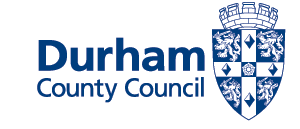Become a Personal Assistant (PA)
Would you enjoy a career where every day is different? Find out how to become a personal assistant in the care sector, working in County Durham with the help of the Care Academy.
How to become a PA
How to become a Personal Assistant in the care sector transcript (PDF, 105 KB)
Entry Requirements
There are no specific entry requirements for this qualification. However, learners must be aged 19 or over to enrol on this course.
PA induction training - Level 1 Qualification
As a personal assistant you'll work directly with one or more individuals to help them with various aspects of their daily life, to help them live as independently as possible.
The role of a personal assistant is extremely varied, and no two jobs will ever be the same. This is because the individual employer can choose exactly how they want you to support them. You'll be employed directly by an individual who's managing and paying for their own care through a social care direct payment or personal budget.
Who the course is for?
You do not necessarily need any qualifications to become a Personal Assistant. What's important is that you're a kind, responsible, compassionate and patient person. A PA needs to have excellent listening and communication skills, along with good literacy, numeracy and interpersonal skills. It might also be helpful to have a social care qualification such as a Level 2 or 3 Diploma in Health and Social Care. Do not worry if you do not have these qualifications you can work towards them once you start the job.
This course is also suitable if you are already working as Personal Assistant and wanting to refresh your knowledge and skills.
What you will learn?
The course will cover the following:
- Understanding Personal Assistants?
- Safeguarding
- Communication
- Health and Safety
- Duty of Care
- Basic Life Support
- Award in progression
- The role of a social care worker
At the end of the course you will be given details of how to register as a Personal Assistant and how to find and apply to current vacancies.
How you will learn?
Blended workplace, remote flexible tutor/Assessor support
Benefits
Beyond this there could be opportunities to progress by doing a vocational qualification such as a Diploma in Health and Social Care or a continuing professional development qualification such as dementia, end of life, or autism care. There may also be opportunities to progress into senior Personal Assistant roles where you're responsible for organising rotes, training or wages, or you may choose to go into other roles such as advocacy worker, care worker or rehabilitation worker
Skills for Care: personal assistant
Course start dates and times
This course will be delivered face to face in community venues.
| Venue | Day | Time | Start date | Number of days |
|---|---|---|---|---|
| TBC | Monday to Friday | 10.00am to 3.00pm | TBC | 5 |
If you would like to find out more and enrol please complete the Personal Assistant expression of interest form
Understanding Autism course
Autism Central have launched an online training course for personal assistants. The course is aimed at paid carers of autistic people who would like to gain a deeper understanding of autism and how best to support the autistic people they work with. To find out more and access the course see Autism Central: Understanding autism for personal assistants course
See Care Academy courses for a wide range of other courses available to Personal Assistants which can be studied via blended learning. This includes accredited qualifications which can support career progression.

 Share this page on Facebook
Share this page on Facebook
 Share this page on Twitter
Share this page on Twitter
 Print this page
Print this page





